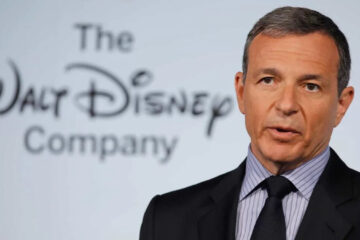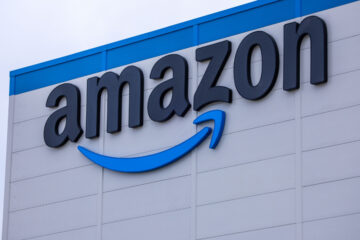Elon Musk is one of the world’s most divisive people. He may be one of the world’s most mercurial business leaders, and people either love or hate him.
Musk’s fans credit him with somewhat single-handedly mainstreaming electric vehicles at Tesla and cheer his ambitious goals for autonomous driving, robots, telecom, and space exploration. His detractors cite failed timelines, egocentricity, and erratic behavior.
Related: Tesla, Elon Musk make drastic decision amid U.S.-China trade war
Musk’s fans and foes have become even more divided following his embrace of President Donald Trump’s Presidency and his role in the Department of Government Efficiency, or DOGE, an organization within the administration tasked with cutting costs.
Musk’s role as a business leader and Trump confidant makes his past comments on tariffs and trade intriguing, particularly given an escalating trade war with China and new tariffs on autos and imports from Canada and Mexico, key hubs for autos and auto parts.
Elon Musk is on the hot seat in 2025, causing Tesla sales to drop.
Image source: Shutterstock
Growing trade tussle gives Musk another headache
Tesla became an aspirational car company because of Musk’s relentless pursuit of performance. Rather than building solely energy-efficient cars, he focused on high-performance luxury cars that could rival Porsche and Mercedes-Benz.
Related: Tesla stock analyst has one-word reaction to recent sell-off, shares surge
However, Tesla’s breathtaking zero-to-60 speeds and high-tech gadgetry aren’t nearly the draw they used to be.
Most major car companies, including the luxury German automakers, have followed Tesla’s lead, spending big money to develop their own high-end EVs. This has eroded Tesla’s moat, and as a result, its market share is slipping.
For example:
Tesla’s China unit sales fell 21.8% year-over-year in Q1, according to the China Passenger Car Association.The French industry association Plateforme Automobile said on April 1 that Tesla vehicle registrations dropped 37% to 3,157 in March.Tesla’s first-quarter sales in Germany fell 62.2% year-over-year, according to KBA. Tesla’s unit sales volume fell 9% from year-ago levels in Q1, according to KBB.
At least some of those declines are likely due to a refresh of its best-selling Model Y. Yet, buyer sentiment toward Musk may also be weighing down sales.
Regardless, Musk’s Tesla faces another challenge following President Trump’s newly launched tariffs. Like most automakers, Tesla relies on the global auto supply chain, even though vehicles sold in the U.S. are manufactured in American plants.
In 2021, America imported $159.6 billion in automotive parts, ranging from body parts to brakes. Over 50% of those imports came from Mexico, Canada, and China, according to AutomarketAftermarket.org.
Of the 16 million cars sold in 2024, only 25% of the vehicle content is made in America, according to the White House.
Tesla boasts more made-in-America parts, but it’s not unaffected by tariffs. A study from American University’s Kogod School of Business suggests that between 13% and 20% of Tesla vehicles consist of parts made overseas.
Elon Musk sent a blunt message on tariffs
Musk is a manufacturing expert for good reason. He’s spent considerable time, effort, and money creating high-tech manufacturing plants for his businesses, including SpaceX and Tesla.
His experience making complex products in America suggests he knows a thing or two, making his take on tariffs particularly intriguing.
Related: Top analyst revisits Tesla stock price target as Q1 earnings loom
“I think you need to be careful with tariffs,” said Musk on The Joe Rogan Experience.
Regarding tariffs’ impact on the automotive supply chain, Musk said, “If that part is suddenly twice as expensive, it messes everything up.”
Musk advocates for predictable tariffs “so companies can adjust their supply chain.” He believes companies would shift production to the U.S., but such changes can’t be done overnight.
Building factories is costly, and modern factories are much different than the factories most of us imagine.
“You’ve got to build a building, install equipment, train people. That doesn’t happen instantly. You wanna have a ramp so companies can adjust,” said Musk. “Otherwise, you just shock the system, and it breaks, or bad things happen. So I’m against sudden giant tariffs.”
Musk says manufacturing is more complex than some think.
“Manufacturing is super hard,” said Musk. “For a lot of people…they’ve never actually made anything, so they operate on the premise that there’s this magical horn of plenty that just outputs goods and services…I’m like, guys, there’s no magical horn of plenty.”
While we’ve moved a lot of manufacturing overseas, America is far from a manufacturing desert.
“America’s still the second-biggest manufacturer in the world,” said Musk. “We could make more. We probably should make more.”
But the goal shouldn’t necessarily be to become self-sufficient.
“There’s a lot to the economics of comparative advantage. If you’re completely self-sufficient, what that means is that you make all the stuff yourself, even if some other country is really good at making something, you still make it yourself, which means you’re going to have an inferior, more costly part domestically,” said Musk. “Trade improves prosperity. You don’t actually want to make everything yourself… specialization of labor still matters.”
Related: Veteran fund manager unveils eye-popping S&P 500 forecast


